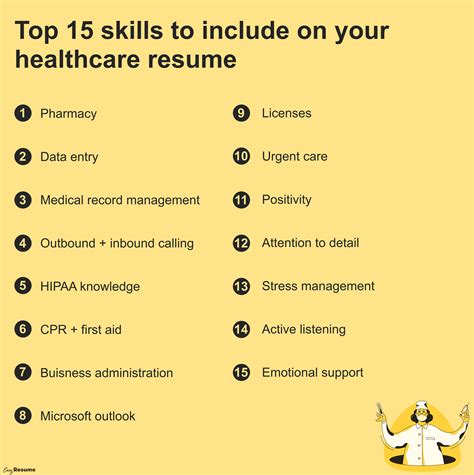Becoming a doctor is a rewarding but challenging career path. It requires extensive education, training, and a wide range of skills. Here are some essential skills that every aspiring doctor should possess:

Medical Knowledge and Expertise
-
Strong Foundation in Science: Doctors must have a deep understanding of biology, chemistry, physics, and other scientific disciplines. This knowledge forms the basis for diagnosing and treating medical conditions.
-
Medical Diagnosis and Treatment: Doctors must be able to accurately diagnose and treat a variety of illnesses and injuries. This involves analyzing patient symptoms, performing physical exams, interpreting medical tests, and prescribing medications or therapies.
-
Surgical Skills (for Surgeons): Surgeons need specialized skills in performing surgical procedures. These skills include precision, dexterity, and the ability to work under pressure.
Communication and Interpersonal Skills
-
Excellent Communication: Doctors must be able to communicate effectively with patients, families, colleagues, and other healthcare professionals. This includes listening actively, explaining complex medical information clearly, and building strong rapport.
-
Empathy and Compassion: Doctors should possess empathy and compassion for their patients. They must be able to understand and relate to their patients’ experiences and provide support and comfort.
-
Cultural Sensitivity: Doctors should be sensitive to cultural and socioeconomic differences that may affect patients’ health and healthcare experiences. This includes understanding different beliefs, values, and practices.
Problem-Solving and Critical Thinking
-
Analytical Thinking: Doctors must be able to analyze information, identify problems, and develop effective solutions. This involves gathering data, considering different perspectives, and making evidence-based decisions.
-
Critical Thinking: Doctors must be able to critically evaluate information, identify biases, and make sound judgments. This is essential for making accurate diagnoses and providing appropriate treatment plans.
-
Research Skills: Doctors should be able to conduct research, interpret medical literature, and stay updated on the latest advancements in medicine. This ensures that they provide the most current and effective care to their patients.
Technical Skills
-
Medical Technology Proficiency: Doctors should be familiar with medical technology and equipment, such as electronic health records, diagnostic imaging systems, and medical devices. This allows them to efficiently and effectively deliver patient care.
-
Computer Literacy: Doctors should be comfortable using computers and medical software for documentation, research, and patient communication.
Personal Qualities
-
Dedication and Hard Work: Becoming a doctor requires dedication, hard work, and a willingness to invest significant time and effort in education and training.
-
Resilience and Stress Management: Doctors face demanding work environments and stressful situations. They must be resilient and able to manage stress effectively.
-
Professionalism and Ethics: Doctors must adhere to ethical guidelines, maintain confidentiality, and uphold the highest standards of professional conduct.
Specialty-Specific Skills
In addition to these general skills, doctors in different specialties may need additional specific skills, such as:
| Specialty | Required Skills |
|---|---|
| Pediatrician | Child development, child psychology, vaccine administration |
| Cardiologist | Electrocardiogram interpretation, cardiovascular surgery |
| Oncologist | Cancer diagnosis, chemotherapy administration |
| Dermatologist | Skin disease diagnosis, dermatological procedures |
| Orthopedic Surgeon | Musculoskeletal system repair, joint replacement |
Education and Training Pathway
To become a doctor, individuals typically complete the following education and training pathway:
-
Undergraduate Degree: A bachelor’s degree in science, such as biology or chemistry, is required for admission to medical school.
-
Medical School: Medical school is a four-year program that provides in-depth medical knowledge and clinical experience.
-
Residency: After graduating from medical school, doctors complete a residency program in their chosen specialty. Residency typically lasts for three to seven years, depending on the specialty.
-
Board Certification: Doctors are required to pass board certification exams to demonstrate their knowledge and skills in their specialty.
Conclusion
Becoming a doctor is a fulfilling but demanding career that requires a comprehensive range of skills. Aspiring doctors should possess a strong foundation in medical knowledge, excellent communication and interpersonal skills, problem-solving abilities, technical proficiency, and personal qualities such as dedication and resilience. By acquiring these skills and completing the necessary education and training pathway, individuals can embark on a rewarding journey in the medical profession.
